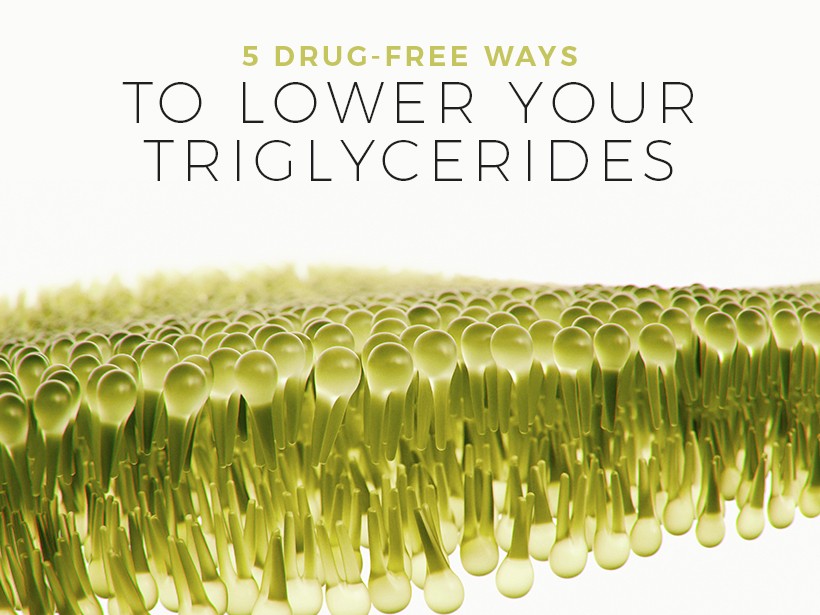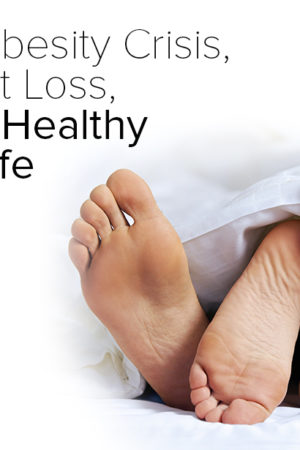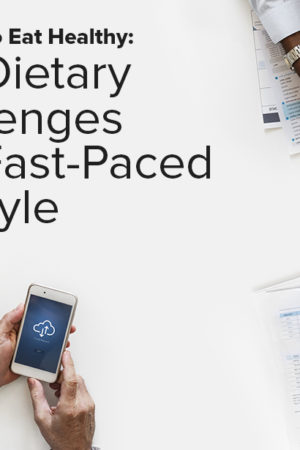While millions of people in the United States and across the world understand the dangers associated with the obesity crisis and the heart disease epidemic, very few people think of high triglyceride levels as a potential danger to their health.
According to a recent study1, one in three American adults had triglyceride levels that were borderline high while almost 20 percent of people had levels that were significantly higher than recommended.
What Are Triglycerides?
Triglycerides are a type of fat, or lipid, that is found in your blood. The excess calories that are not used as energy by your body are immediately turned into triglycerides that are subsequently stored in your fat cells. Certain hormones in your body will then release these triglycerides as an alternative fuel source between meals.
The Mayo Clinic reports2 that normal triglyceride levels in healthy adults are less than 150 milligrams per decoliter, while high triglyceride levels are about 200 milligrams per deciliter. High levels of high triglycerides can point towards metabolic syndrome, which might increase the risk for heart attacks or strokes.
What Causes High Triglyceride Levels?
People who eat a high calorie diet are especially at risk for suffering from high glyceride levels, especially if you are not physically active. Since excess calories not used by your body are turned into triglycerides, the more empty calories you eat, the higher your triglyceride levels will be. Furthermore, diets that are high in carbohydrates and sugars are also a major risk factor for increasing the triglyceride level in your blood.
Not all triglycerides are bad, however, and certain low-carb diets such as the keto diet are known to increase MCTs, or medium-chain triglycerides, which are a healthier form of triglycerides for the human body.
How to Treat High Triglyceride Levels
The rise in obesity has directly led to an increase in people suffering from high triglyceride levels, which has doubled in the last three decades3. People who suffer from this health issue often take a wide range of drugs, the most common of which is niacin therapy. According to one doctor from the Harvard Medical School4, however, niacin therapy does not necessarily reduce the risk of heart disease associated with high triglyceride levels, but also can lead to troublesome side effects such as an increased risk of infections.
Fortunately, there are several ways to lower your triglyceride levels without relying on niacin therapy or other chemical drugs.
- Lose Weight: Even if you only lose 5 percent of your current body weight, you can significantly reduce your blood triglyceride levels.
- Aged Garlic Extract (AGE): Garlic is a natural ingredient that has several benefits for the cardiovascular system. Besides lowering levels of coronary plaque, taking AGE regularly can help to lower your triglyceride levels.
- Follow a Low-Carb Diet: One of the best ways to lower your triglyceride levels is through reducing your calorie intake. Since most calories come from easy carbs like breads and pastas, lowering your carbohydrates through following a low-carb diet offers several health benefits.
NUTRITIONAL DISCLAIMER
The content on this website should not be taken as medical advice and you should ALWAYS consult with your doctor before starting any diet or exercise program. We provide nutritional data for our recipes as a courtesy to our readers. We use Total Keto Diet app software to calculate the nutrition and we remove fiber and sugar alcohols, like erythritol, from the total carbohydrate count to get to the net carb count, as they do not affect your blood glucose levels. You should independently calculate nutritional information on your own and not rely on our data. The website or content herein is not intended to cure, prevent, diagnose or treat any disease. This website shall not be liable for adverse reactions or any other outcome resulting from the use of recipes or recommendations on the Website or actions you take as a result. Any action you take is strictly at your own risk.
- The Top Drug-Free Ways to Lower Triglycerides - August 9, 2018
- The Obesity Crisis, Weight Loss, and a Healthy Sex Life - April 20, 2018
- Too Busy to Eat Healthy: The Dietary Challenges of a Fast-Paced Lifestyle - April 19, 2018































